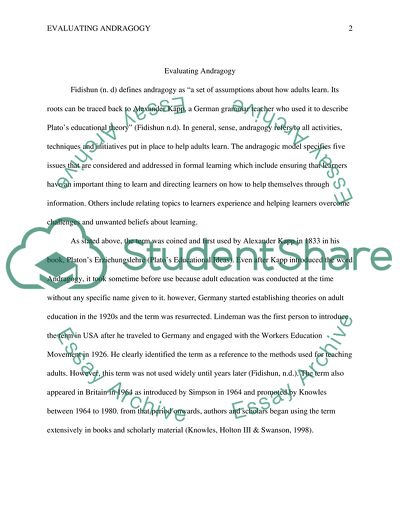Cite this document
(Defining and Evaluating Andragogy Essay Example | Topics and Well Written Essays - 1250 words, n.d.)
Defining and Evaluating Andragogy Essay Example | Topics and Well Written Essays - 1250 words. https://studentshare.org/education/1830635-evaluating-adragogy
Defining and Evaluating Andragogy Essay Example | Topics and Well Written Essays - 1250 words. https://studentshare.org/education/1830635-evaluating-adragogy
(Defining and Evaluating Andragogy Essay Example | Topics and Well Written Essays - 1250 Words)
Defining and Evaluating Andragogy Essay Example | Topics and Well Written Essays - 1250 Words. https://studentshare.org/education/1830635-evaluating-adragogy.
Defining and Evaluating Andragogy Essay Example | Topics and Well Written Essays - 1250 Words. https://studentshare.org/education/1830635-evaluating-adragogy.
“Defining and Evaluating Andragogy Essay Example | Topics and Well Written Essays - 1250 Words”. https://studentshare.org/education/1830635-evaluating-adragogy.


